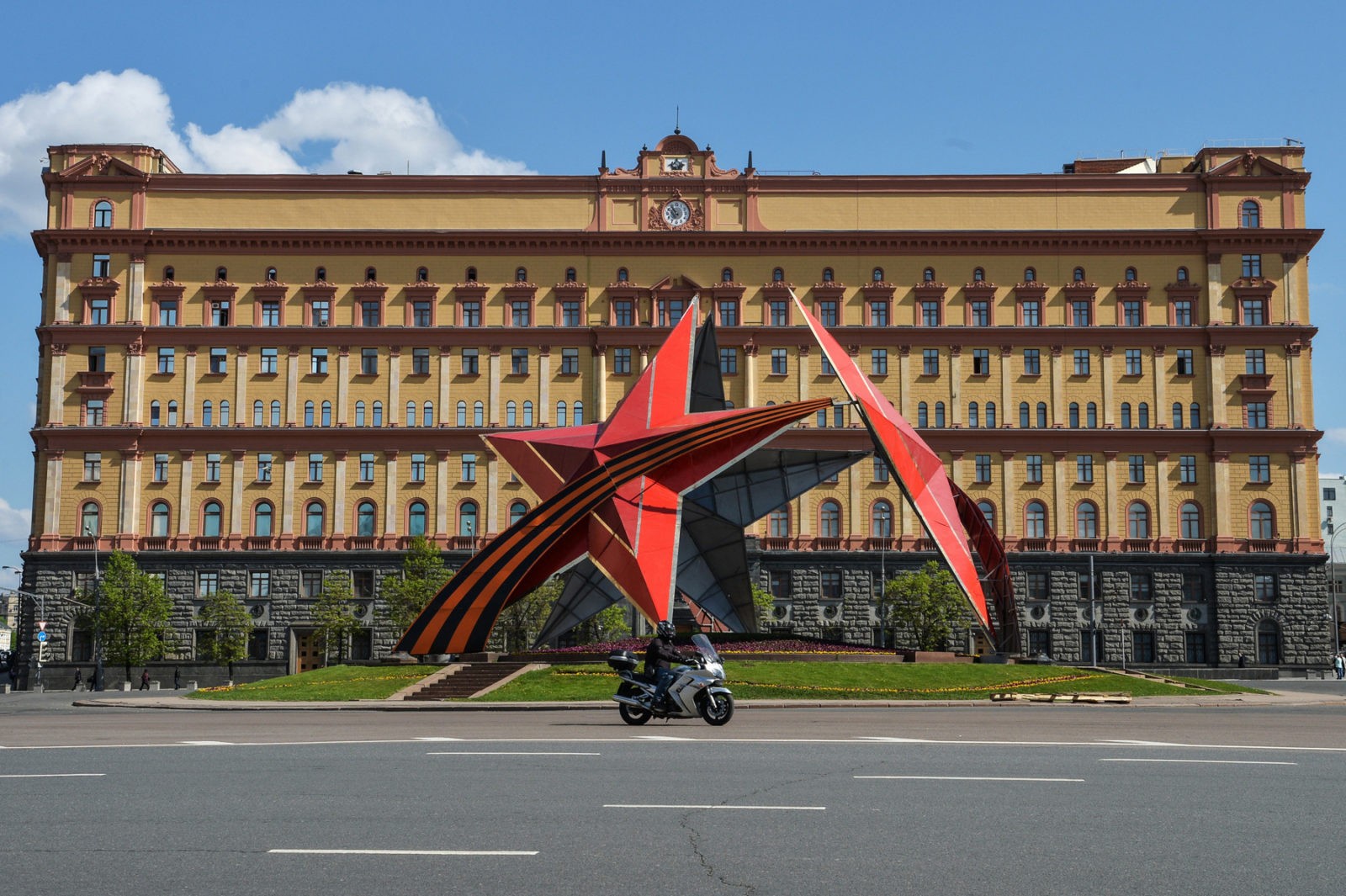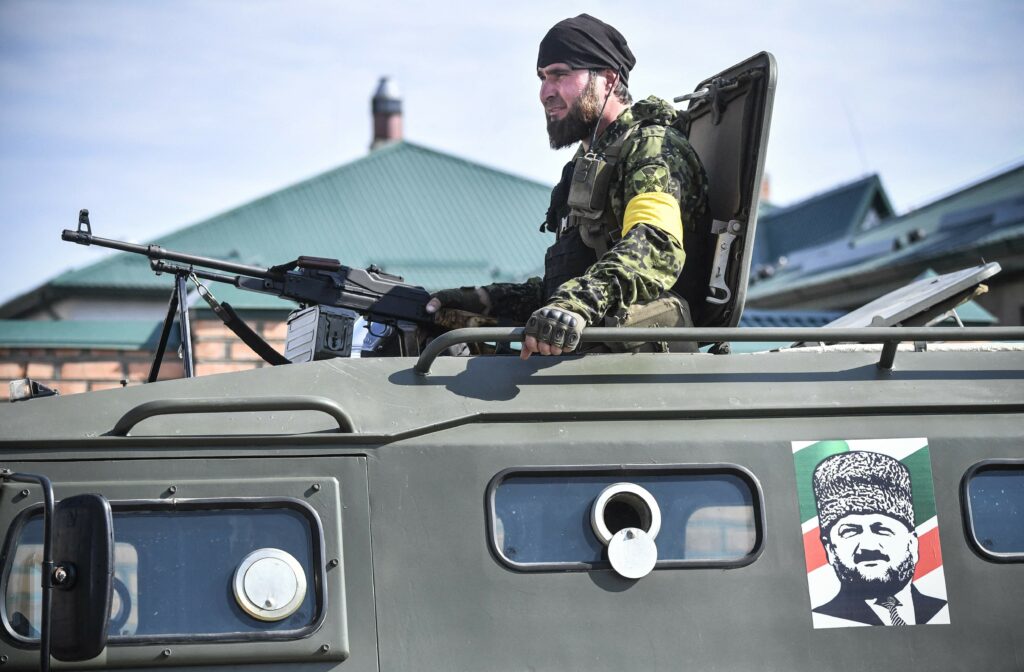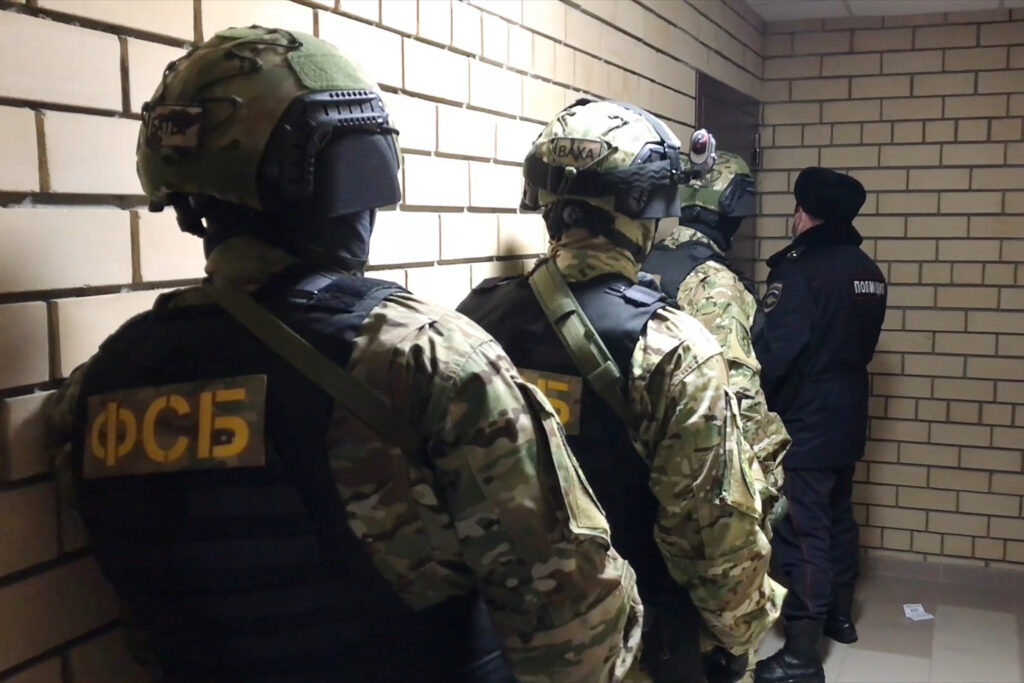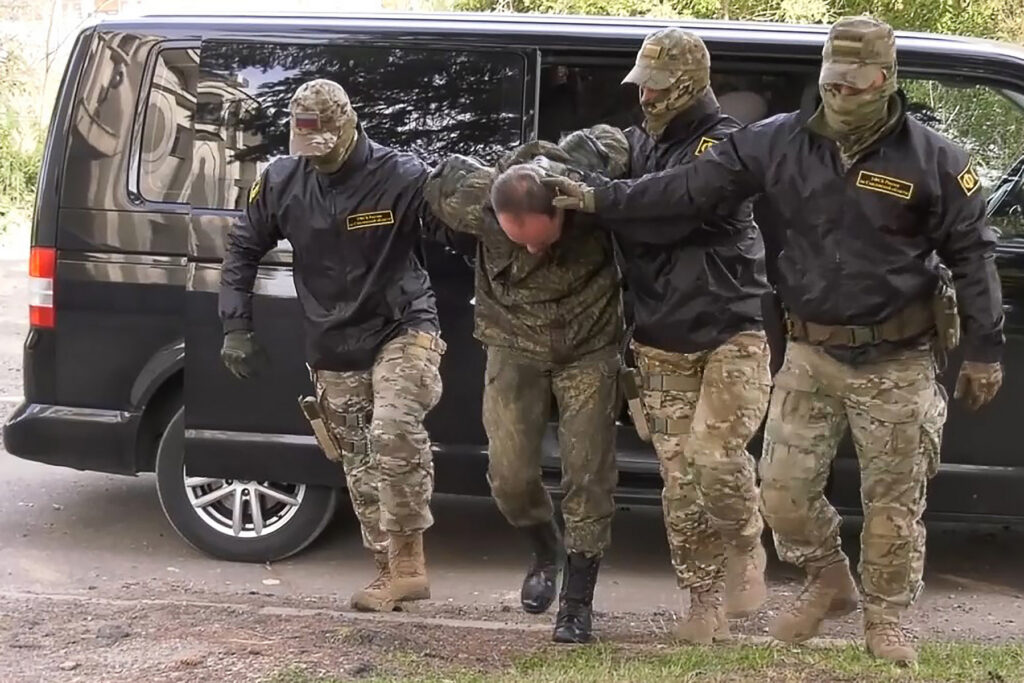Whenever siloviki (military, law enforcement, or security officials) are arrested in Russia on high-profile charges, the move is often interpreted in Russian society as yet another development in the so-called “war between the security services.” A search then begins to establish which of the security services’ bosses has been strengthened, and which weakened, as a result of these criminal cases. To a great extent, this response is a consequence of Russian society’s widespread presumption of the state’s omniscience. Attempts to make sense of the arrests are upended not just by the popular lack of knowledge about these siloviki, but also because they cannot by definition reach any satisfying conclusions: the regular high-profile cases concerning the security services’ corruption are more the result of spontaneous clashes between different actors driven by professional and personal interests. There is no grand plan; this is no meticulous Game of Thrones.
Domination versus the common good
Nevertheless, attempts to understand the siloviki through the intrigues of its generals and colonels is not without foundation. Yet given that we are dealing with several hundred generals (the Ministry of Internal Affairs alone officially employs 340 of them) followed by thousands of colonels, the security services’ internal “wars” should by rights surpass the scale of even George R.R. Martin’s epic novels. Moreover, not all of these generals and colonels actually have the authority to launch and conduct operations and investigations themselves (see table below). Thus it turns out that not every silovik has the right to take up sides in a hypothetical secret services’ war, in which criminal cases is the main weapon. For example, the Russian National Guard and the general prosecutor’s office do not have this right at all.
Things seem to be much more straightforward: high-profile scandals featuring the arrests of officers occur precisely because the many different arms of Russia’s massive security service apparatus are trying to do their job. However, they do not accurately understand the principles and practices of other agencies, even within their own department. This incoherence causes problems; although each of Russia’s security services largely has the right to conduct preliminary investigations and investigations, they are structured in such a way so that their legal functions are largely identical. Overall, the system has two goals. First is to respond to the Kremlin’s distrust towards both Russian society and the security services themselves; this means fighting against both real and imaginary threats to the country’s authoritarian government. Second is to maintain the social and political status quo as defined by this authoritarian setup, in the absence of an effective system of checks and balances and an appropriately accountable system for examining the decisions it makes.
It is important to understand that the first task is always a priority for Russia’s security services, even at the expense of the second. Accordingly, political expediency always triumphs over any concerns for order, legality, and the common good.

Above the law, lawless, and with violence
The authoritarian nature of the Russian state means that its officials and the government are free to determine when and whether they are subject to their own laws. Accordingly, highest echelons of the security services are partially excluded from these laws, and govern themselves by informal political and economic ties. A distinction being above the law and being lawless exists only in the mind of Russian government officials, for whom that border can be moved at will.
In order to assert its dominance, the Russian government relies on a powerful mechanism of subordination: namely, its obviously impractical, contradictory, confusing, and constantly updated arsenal of formal rules and regulations. This mechanism arose over a century ago, shortly after the Bolsheviks came to power, and was a byproduct of their doomed attempts to construct a planned economy and regulate all aspects of citizens’ lives.
This mechanism forces everybody — siloviki, state officials, and ordinary citizens alike — to constantly adapt to changes. This relentless demand for adaptation is already a form of submission. The fact that everybody is forced to violate these rules on a regular basis provides the government and security services multiple opportunities to arbitrarily decide who should be punished and who should walk free. Importantly, this mechanism also holds true for employees of the security services themselves.
This entraps Russian society in a vicious circle of mutual distrust. Given that everybody violates the law to one degree or another, nobody is completely innocent — hence the Kremlin’s long-standing mantras about Russians’ “legal nihilism.” At the same time, this gives rise to an interesting phenomenon: apart from the field of legal practice, no subject of these laws has any reliable knowledge about their precise status. In some ways, it is the exact opposite of Blockchain technology, where each link in the chain has information about every past transaction.
However, this “anti-Blockchain” model of political domination is fraught with danger: the potential for total violence is built into it. With the death of Stalin in 1953, society had lived through 36 years of such violence; the Bolshevik party came to an understanding internally, and with society at large, that the mass purges within the state and mass violence against its citizens had to become a thing of the past. This consensus was also accepted in post-Soviet Russia.
So the siloviki watch each other’s backs. Their junior and mid-ranking officers are completely devoid of initiative and are unable to take decisions independently (while their superiors no longer have that luxury.) Meanwhile, their activities are reported on with even more frequency. The consequence of this are bloated institutions with far too many employees, and a decreased ability to maintain order in the ranks. This is why the police and security services so frequently undergo organisational restructuring —- to prevent them from exercising excessive autonomy from the country’s political leadership.
A silovik superposition
Nevertheless, Russia’s security services have learnt ways of surviving and even thriving amid these contradictions and confusions. For example, the practice of planting drugs was adopted in the 1990s, when narcotics flooded into the country and the police and security services were too weak to take on organised criminals. Initially this illegal practice an exception to the rule, but in subsequent years it has become a routine, even tacitly approved, method of Russian law enforcement.
Once the Russian government made the fight against drugs a political priority, it quickly became mired in bureaucratic inertia. The security services already had a convenient way to report successes to the leadership through “solving” non-existent drug related crimes and arrests of ordinary drug users. Meanwhile, actual criminals quickly learned to manoeuvre between the different law enforcement agencies: by becoming informants for some, they essentially received “free passes” from others. However, since the law had already been violated from the very start, it was impossible to transform these illicit practices into a useful way of earning cash or settling accounts.
These contradictions can also be seen on a broader scale. For example, the “participation of Russian security services officials” in cocaine shipments is more than it first appears: it is not merely an opportunity to make money for the wealthy under the pretext of controlling drug trafficking, but also a strong lever of influence on the elites of countries where cocaine is produced and consumed.
The same logic applies to Russian businesses’ subordination to the security services, a practice explained by several political motives. The Russian authorities seek to dominate those sectors of the economy which it considers crucial, at all costs. This rent-seeking model allows them to saturate the political arena with resources, allowing it to maintain order in the country as understood by an authoritarian leadership. This approach also provides rewards to important figures for their loyalty to the regime — the easiest way to do that is to give individual families a stake in businesses which bring a steady flow of income. The authorities, for their part, are of course also interested in establishing monopolies to enrich themselves. After all this, the presumption of guilt naturally falls on independent entrepreneurs — a presumption buttressed by many decades of Soviet rule.
The final result is a complex network of interests in which the secret services themselves, especially their leaders and senior officers, maintain ties to various enterprises and well connected businessmen and those provide sensitive services to Russian companies. In light of the conflicting and ever changing laws and constant administrative and political pressure, this mutual support makes sense. The most notable example here are the stockpiles of ready cash apparently discovered in the possession of police colonel D. Zakharchenko and FSB colonel K. Cherkalin. These resources can perform several functions. They could be an unofficial system of controlling the movement of funds withdrawn from state-owned companies, so as to avoid having to deal with organised criminals as middlemen. Much the same principle applies to corrupt financial flows in the lower echelons of Russian politics. They could also be financial nodes between large Russian companies and the international banking system — the reason being that the operation of companies in Russia is officially so tightly regulated, particularly if they work with state contracts, that they lose all flexibility if operating legally. In fact, to fulfil the political expectations made of them, these companies need freer financial resources. Storing funds in this way can also represent a “rainy day fund” for the security services themselves, which always need to siphon some state funding in order to operate and carry out their legal and not so legal orders from Russia’s political leadership.
Last but not least, all of the above contributes to the personal enrichment of Russia’s high ranking security officials and their families. When their “cashiers,” due to unavoidable mistakes, come to the attention of the Russian state’s other secret services, then scandals are the unintended but inevitable consequences. Admittedly this system does at times lead to absurd excesses, such as the case of gangs of FSB officers who rob banks or even carry out contract killings. This might not be so surprising; when professional duties require one to go beyond the law, that is the natural outcome.
As a result, when we speak about clashes between Russia’s security services, we are dealing with what could aptly be called “Schrödinger’s crimes.” In his famous paradox, Schrödinger’s famous cat is simultaneously alive and dead until we open the box. Similarly, the Russian security services both do and do not commit crimes until the external observer accidentally or intentionally opens this “black box” of misdeeds. It is a quantum superposition illustrated by the acts of thousands of security officers on a regular basis.
Corruption is thereby naturally reproduced within Russia’s law enforcement agencies. That is the norm. And the main factor behind that is the Russian government, which is above the law. As a result, assuming for the sake of argument that the common good genuinely is its priority, the Russian leadership must first return to the rule of law, then reconstruct the entire system of law enforcement agencies. Nevertheless, this cannot be done under the prevailing political system.










